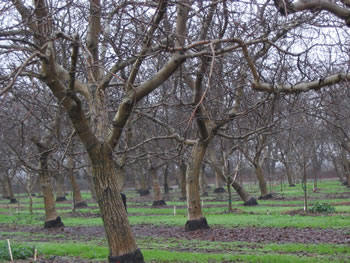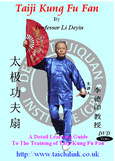Chapter 72
"If the people do not fear the dreadful, the great dreadful will come, surely.
Let them not deem their lives narrow.
Let them not deem their lot wearisome.
When it is not deemed wearisome, then it will not be wearisome.
Therefore the holy man knows himself but does not display himself.
He holds himself dear but does not honor himself.
Thus he discards the latter and chooses the former."
- Translated by D. T. Suzuki and Paul Carus, 1913, Chapter 72
"When the people do not fear what they ought to fear, that which is their great dread will come on them.
Let them not thoughtlessly indulge themselves in their ordinary life;
Let them not act as if weary of what that life depends on.
It is by avoiding such indulgence that such weariness does not arise.
Therefore the sage knows these things of himself, but does not parade his knowledge;
Loves, but does not appear to set a value on, himself.
And thus he puts the latter alternative away and makes choice of the former."
- Translated by James Legge, 1891, Chapter 72
"When people lose their fear of power
Then great power has indeed arrived.
Do not intrude on the people's material living.
Do not despise their spiritual lives, either.
If you respect them, you will be respected.
Therefore the Sage knows himself,
But he is not opinionated.
He loves himself, but he is not arrogant.
He lets go of conceit and opinion, and embraces self-knowledge and love."
- Translated by John R. Mabry, Chapter 72
民不畏威.
則大威至.
無狎其所居, 無厭其所生.
夫唯不厭.
是以不厭.
是以聖人自知不自見.
自愛不自貴.
故去彼取此.
- Chinese characters, Tao Te Ching, Chapter 72
min pu wei wei.
tsê ta wei chih.
wu hsia ch'i so chü, wu yen ch'i so shêng.
fu wei pu yen.
shih yi pu yen.
shih yi shêng jên tzu chih pu tzu chien.
tzu ai pu tzu kuei.
ku ch'ü pi ch'ü tz'u.
- Wade-Giles Romanization, Tao Te Ching, Chapter 72
Tao Te Ching in Chinese characters and English (includes a word by word key) from YellowBridge
Tao Te Ching in Chinese characters, Hanyu Pinyin (1982) Romanization, English and German by Dr. Hilmar Alquiros.
Laozi Daodejing: Chapters with Chinese characters, seal script, detailed word by word concordance, Pinyin (tone#), German, French and English.
Chinese and English Dictionary, MDGB
Google Translator
Chinese Character Dictionary
Dao De Jing Wade-Giles Concordance by Nina, Dao is Open
Dao De Jing English and Wade-Giles Concordance by Mike Garofalo
Tao Te Ching in Pinyin Romanization with Chinese characters, WuWei Foundation
Tao Te Ching in Pinyin Romanization
Tao Te Ching in Chinese characters and English
Tao Te Ching: English translation, Word by Word Chinese and English, and Commentary, Center Tao by Carl Abbott
Tao Te Ching in Chinese characters, English, Word by word analysis, Zhongwen
Tao Te Ching: The Definitive Edition
Tao Te Ching in Chinese characters: Big 5 Traditional and GB Simplified
Convert from Pinyin to Wade Giles to Yale Romanizations of Words and Terms: A Translation Tool from Qi Journal
Chinese Characters, Wade-Giles and Pinyin Romanizations, and 16 English Translations for Each Chapter of the Daodejing by Mike Garofalo.
"When the people no longer fear your power,
It is a sign that a greater power is coming.
Interfere not lightly with their dwelling,
Nor lay heavy burdens upon their livelihood.
Only when you cease to weary them,
They will cease to be wearied of you.
Therefore, the Sage knows himself,
But makes no show of himself,
Loves himself,
But does not exalt himself.
He prefers what is within to what is without."
- Translated by John C. H. Wu, Chapter 72
"Cuando el pueblo no teme al poder,
es cuando ese poder mas los amenaza.
No condenarlos en casas estrechas,
No atosigarlos en sus trabajos.
No permitir la pena y así no habrá sufrimiento.
por eso, el sabio se conoce
pero no se exhibe.
Se respeta a sí mismo
pero no es arrogante.
Deja esto y sigue aquello."
- Translation from Wikisource, 2013, Capitulo 72
"If the people do not dread majesty,
Then great majesty will come to them.
Let them guard the innermost of their dwellings,
Let them press towards the innermost of their life.
The Master indeed is not bound,
That is why he is not bound.
That is how the self-controlled man knows the Self and perceives the not-Self.
He loves the Self, and honours the not-Self.
Therefore he passes away from the latter and takes hold of the former."
- Translated by Isabella Mears, 1916, Chapter 72
Chapter and Thematic Index (Concordance) to the Tao Te Ching
Taoism: A Selected Reading List













.jpg)










